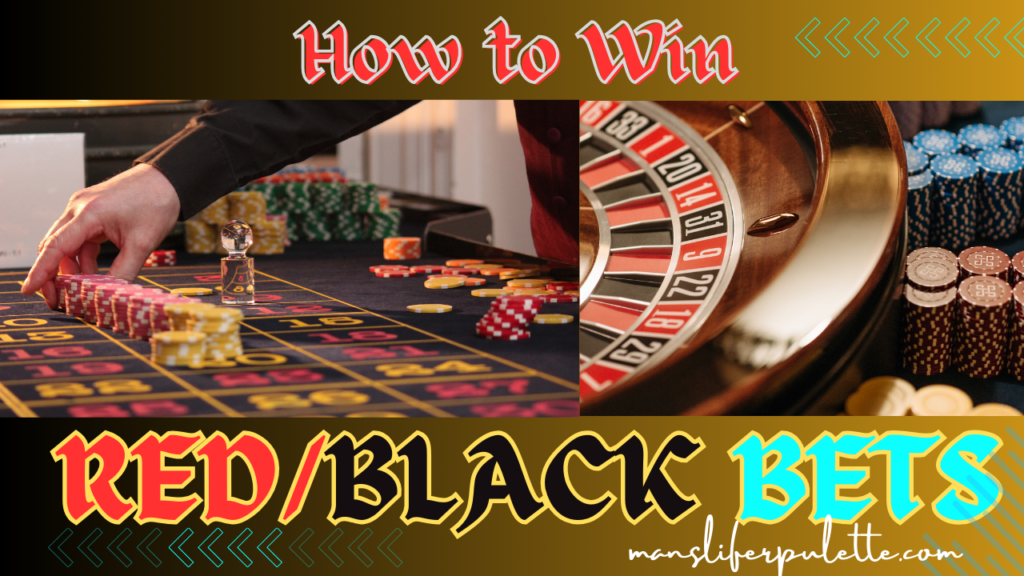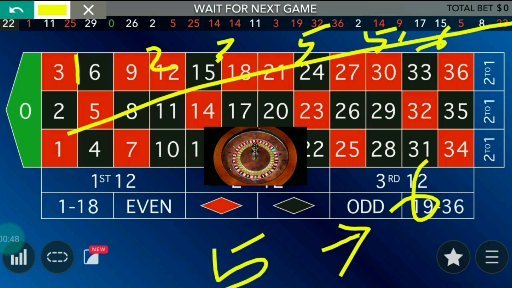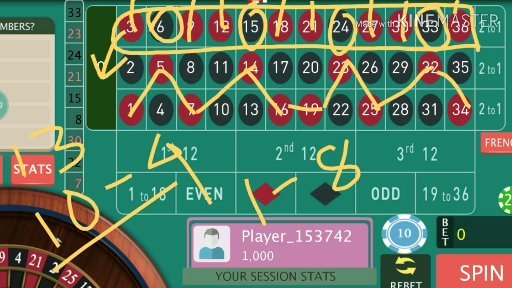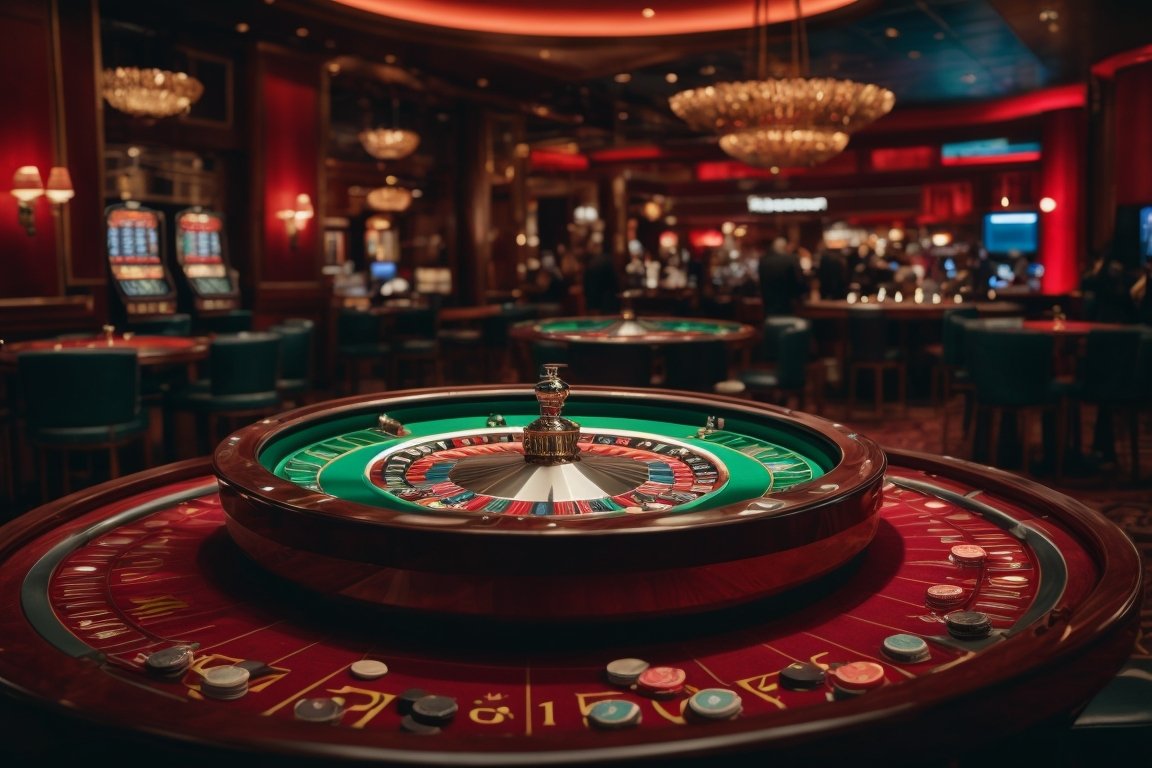Introduction:
Roulette, with its spinning wheel and anticipation-filled atmosphere, has long been a favorite among casino enthusiasts. While luck remains a key factor, the art of strategic play can elevate your gaming experience and potentially tip the odds in your favor. In this blog post, we explore five unique roulette winning strategies that blend mathematics, psychology, and intuition to enhance your chances of success.

The Fibonacci Sequence Approach: Unlocking the Numbers Game
Derived from the mesmerizing Fibonacci sequence, this strategy introduces an intriguing numerical dance to your gameplay. Starting with a modest bet, players follow the sequence (1, 1, 2, 3, 5, 8, 13, and so on), progressing to the next number in the sequence only after a loss. By regressing two steps after a win, this method aims to soften the impact of losing streaks and capitalize on winning streaks.

The James Bond Strategy: Channeling 007 in Roulette Mastery
For those with a larger bankroll, the James Bond strategy offers a sophisticated approach. Spread your bets across a combination of numbers, allocating a greater portion to high-probability outcomes. This method, inspired by Ian Fleming’s iconic character, minimizes risk by covering a substantial portion of the wheel, resulting in a thrilling and calculated gameplay experience.

The Martingale System: Riding the Rollercoaster of Bets
A timeless classic in the world of gambling, the Martingale System introduces an element of risk and reward. Double bet if loss loss, to recover previous losses and to make one unit of profit. While theoretically sound, caution is advised as this strategy demands a hefty bankroll and is susceptible to extended losing streaks.
Sector Slicing: Navigating the Wheel with Precision
This strategy adds a touch of finesse to your gameplay by dividing the roulette wheel into sectors. Analyze patterns and historical data to identify favorable sectors and concentrate your bets accordingly. A fusion of statistical analysis and intuition, sector slicing provides a dynamic approach that adapts to the wheel’s unique characteristics.
The Labouchere System: Crafting Your Winning Sequence
For those who appreciate structure and planning, the Labouchere System introduces a personalized betting sequence. Adjust your bets based on the sum of the first and last numbers in the sequence, crossing out numbers upon a win. While demanding careful planning and discipline, this strategy offers a methodical approach to managing your bets.
Conclusion:
Roulette, a game where chance meets strategy, invites players to explore the thrill of uncertainty. These unique strategies offer a glimpse into the nuanced world of roulette, providing a mix of mathematical precision, risk management, and intuitive decision-making. Experiment with these approaches, find the strategy that resonates with your style of play, and remember that, in the end, the essence of roulette lies in its unpredictable and exhilarating nature. Happy spinning!
Frequently Asked Questions (FAQ) on Roulette Winning Strategies
1. What is the Fibonacci Sequence Approach in roulette?
The Fibonacci Sequence Approach is a betting strategy that involves following the famous Fibonacci sequence (1, 1, 2, 3, 5, 8, 13, etc.) when placing bets. Start with a small bet and add after a loss. Regress two steps in the sequence after a win. This strategy aims to minimize losses during losing streaks and maximize gains during winning streaks.
2. Can you explain the James Bond Strategy?
The James Bond Strategy is a sophisticated approach where players spread their bets across a combination of numbers. It typically involves a larger bankroll and focuses on allocating a greater portion of bets on high-probability outcomes. By covering a significant portion of the wheel, this strategy aims to minimize risk and create a calculated gameplay experience.
3. What is the Martingale System, and how does it work in roulette?
The Martingale System is a classic betting strategy where players double their bet after each loss. The idea is to recover previous losses with a subsequent win. While theoretically sound, it requires a substantial bankroll and may be risky during extended losing streaks.
4. How does Sector Slicing work in roulette?
Sector Slicing involves dividing the roulette wheel into sectors based on patterns or historical data. Players concentrate their bets on specific sectors, adjusting their strategy based on the wheel’s historical outcomes. This method combines statistical analysis with intuition, providing a dynamic approach to betting.
5. What is the Labouchere System, and how do I use it in roulette?
The Labouchere System is a betting strategy where players create a personalized betting sequence. Bets are placed based by adding first and last number of the series. After a win, the numbers are crossed out. If a loss occurs, the lost amount is added to the end of the sequence. This strategy needsdiscipline.
6. Are these roulette strategies foolproof?
No roulette strategy is foolproof. Roulette is ultimately a game of chance, and while these strategies can enhance your chances of success and provide a structured approach to betting, there are no guarantees in gambling. It’s important to play responsibly and be aware of the inherent risks.
7. Can I combine these strategies or should I stick to one?
Experimenting with different strategies or combining elements of multiple strategies can add variety to your gameplay. However, it’s essential to understand each strategy thoroughly and adapt them to your playing style. Keep in mind that there’s no one-size-fits-all approach, and finding what works best for you may involve some trial and error.
8. What is the key to success in roulette?
Success in roulette involves a combination of understanding the game, managing your bankroll wisely, and embracing the thrill of uncertainty. While strategies can be valuable tools, enjoying the game responsibly and recognizing that luck plays a significant role are crucial aspects of a positive roulette experience.
You may like to watch on YouTube
















Roulette is a game of chance but a good strategy will increase your chance..